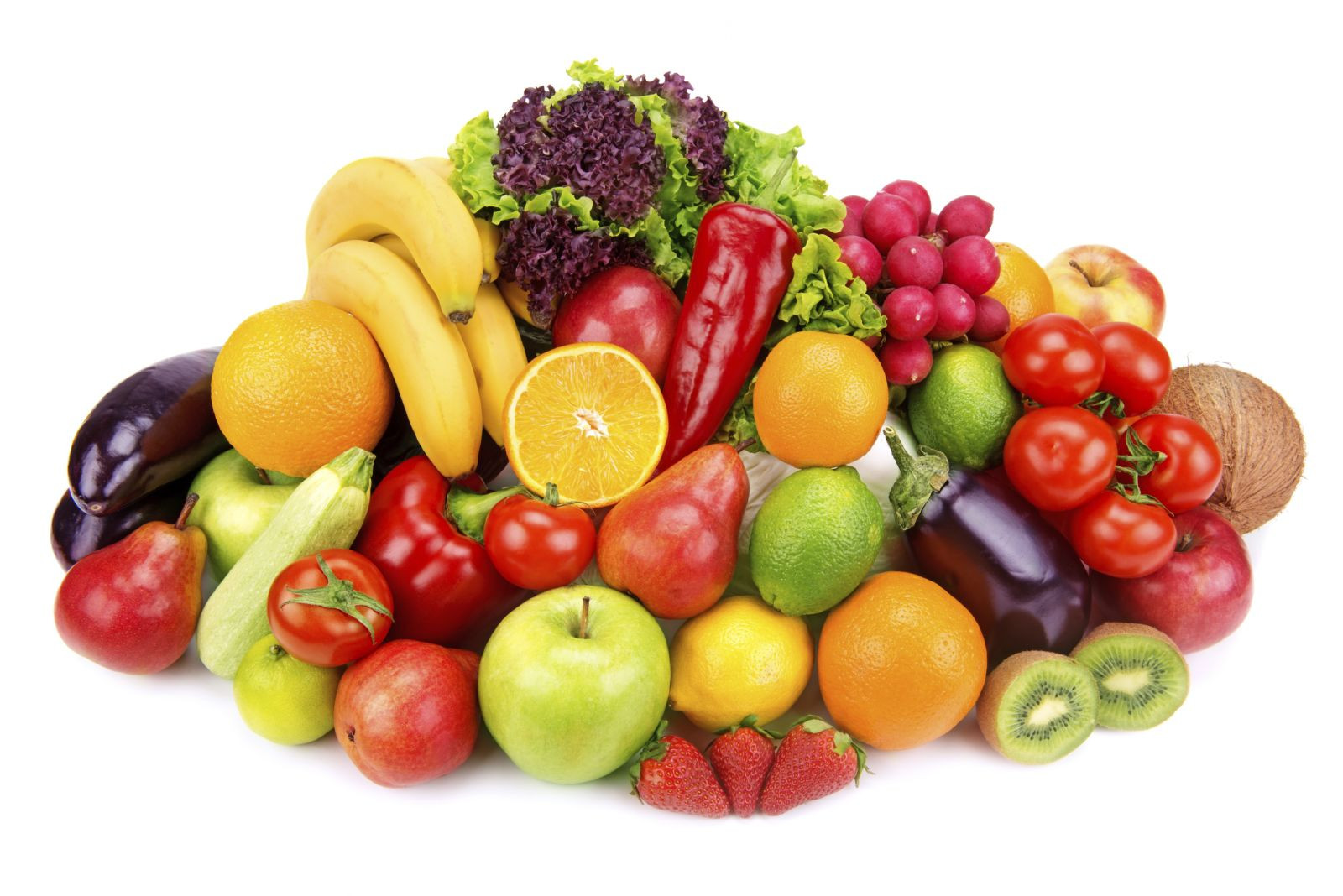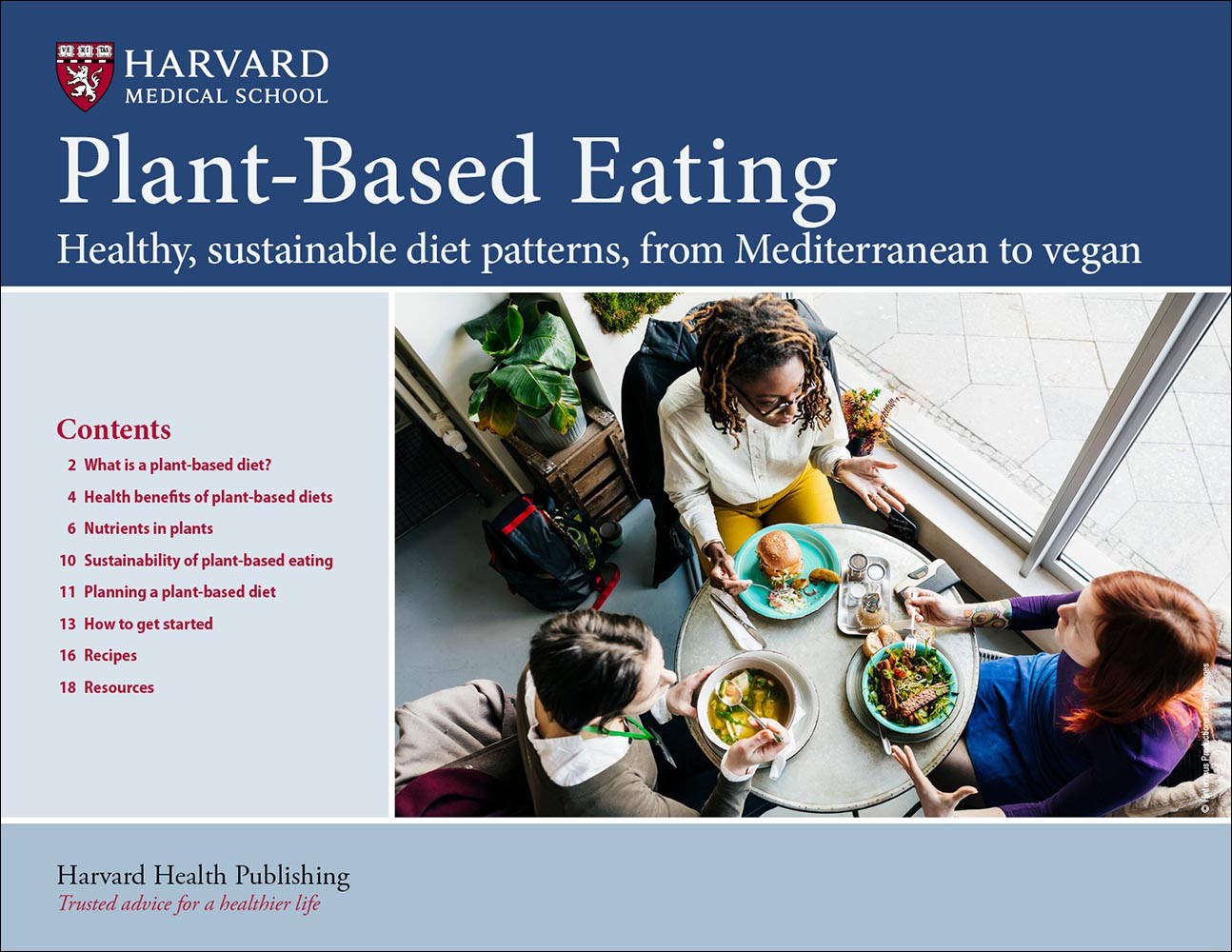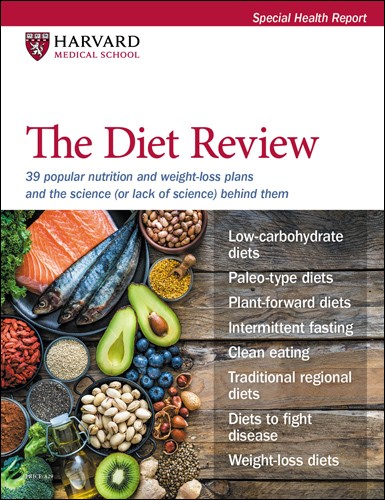
5 timeless habits for better health

What are the symptoms of prostate cancer?

Is your breakfast cereal healthy?

When pain signals an emergency: Symptoms you should never ignore

Does exercise give you energy?

Acupuncture for pain relief: How it works and what to expect

How to avoid jet lag: Tips for staying alert when you travel

Biofeedback therapy: How it works and how it can help relieve pain

Best vitamins and minerals for energy

Should you take probiotics with antibiotics?


Plant-Based Eating: Healthy, sustainable diet patterns, from Mediterranean to vegan
For a variety of reasons, many people are interested in cutting back on animal foods such as meat, poultry, fish, dairy products, and eggs. Some of them are motivated by the health benefits of eating more plants. Another main motivator for eating a plant-based diet is its environmental benefits. In addition, many people are interested in decreasing animal food intake because of concerns about animal welfare or for other moral or religious reasons. The bottom line: more and more people are lightening their intake of animal foods in pursuit of a more sustainable, plant-based lifestyle.
Other Product Information
- vegan diets that exclude all animal foods
- vegetarian diets that avoid animal flesh
- semi-vegetarian (or flexitarian) diets that significantly reduce animal foods
- pescatarian diets that eliminate red meat and poultry.
Traditional diets, such as the Mediterranean diet, tend to focus on more whole, minimally processed plant foods. Known for its well-documented health benefits, the Mediterranean diet is essentially a form of plant-based eating. Most of the diet consists of whole grains, vegetables, fruits, nuts, seeds, and pulses (the edible seeds of legumes such as lentils, beans, and peas). Fish is the primary source of animal protein for those living near a coastline.
Many people choose flexible diet patterns that fall somewhere in between these classifications. For example, some vegetarians may eat very few dairy products; some pescatarians may eat no other animal products, such as dairy products; and some semi-vegetarians are almost entirely vegetarian except when they dine out.
What do these diets have in common? They certainly reduce animal food consumption, particularly red and processed meats. But these ways of eating also focus on what you do eat when you live the plant-based lifestyle: a wide array of whole plant foods that are rich in fiber, slow-digesting carbohydrates, healthy fats, vitamins, minerals, and phytochemicals.
In this report, we will describe the benefits of plant-based eating patterns for health and for the environment. We’ll also offer advice for how to increase plant-based foods in your diet, whether you want to adopt a vegetarian or vegan lifestyle or simply to consume less meat or more vegetables.
Prepared by the editors of Harvard Health Publishing in conjunction with Teresa Fung, Sc.D., R.D., L.D.N., Adjunct Professor of Nutrition, Harvard T.H. Chan School of Public Health. [2023]
About Harvard Medical School Guides
Harvard Medical School Guides delivers compact, practical information on important health concerns. These publications are smaller in scope than our Special Health Reports, but they are written in the same clear, easy-to-understand language, and they provide the authoritative health advice you expect from Harvard Health Publishing.
Choose from these key plant-based food groups at each meal, no matter what your eating style.
Plant proteins. From pulses (beans, lentils, peas) to soy foods (edamame, tempeh, tofu, soy milk) to seitan (made from wheat gluten, a protein) to nuts and seeds, plant protein food groups offer important nutrients beyond protein. These plant protein food sources also contain stores of fiber, healthy fats, vitamins, minerals and phytochemicals. Think of a savory loaf made with beans and walnuts, a hearty bean stew with vegetables, cubes of tofu in a mushroom sauce with pasta, or a plain, simple PB&J sandwich. Aim for a good source of protein at each meal and snack.Whole grains. Plump, crunchy grains of barley, Kamut, and wild rice are examples of whole grains, which include the germ (the embryo for the plant), endosperm (the food store for the embryo), and outer layer of bran. These fiber-rich grains have a lower glycemic index than refined grains; thus, they have
a gentler impact on blood glucose levels and increase satiety (that sense of fullness). In addition, these healthy grains are rich in protein and essential vitamins, minerals, and phytochemicals. The average person should eat about six servings of grains per day, and at least half should be whole grains.
Vegetables. A rainbow of vegetables—leafy greens, carrots, tomatoes, cucumbers, summer squash, asparagus—offer rich rewards of vitamins, minerals, and fiber and high levels of phytochemicals, all for a very low calorie and carbohydrate load. These foods should be the foundation of a healthy plant-based diet. Try to consume two to three cups per day. (continued)
- What is a plant-based diet?
- Health benefits of plant-based diets
- Nutrients in plants
- Sustainability of plant-based eating
- Planning a plant-based diet
- How to get started
- Recipes
- Resources
You might also be interested in…

The Diet Review: 39 popular nutrition and weight-loss plans and the science (or lack of science) behind them
You have tremendous latitude in what goes into your daily diet—and the choices you make can have profound consequences for your health. But what diet should you choose? The range is truly dizzying. Just some of the diets you might encounter are vegan, pegan, and portfolio. Raw food, whole foods, and Whole 30. Keto, carnivore, and paleo. Clean eating and intermittent fasting. DASH, MIND, and Volumetrics. Mediterranean, Nordic, and Okinawan. What does it all mean? And how can you begin to make sense of it? This Special Health Report is here to help.

5 timeless habits for better health

What are the symptoms of prostate cancer?

Is your breakfast cereal healthy?

When pain signals an emergency: Symptoms you should never ignore

Does exercise give you energy?

Acupuncture for pain relief: How it works and what to expect

How to avoid jet lag: Tips for staying alert when you travel

Biofeedback therapy: How it works and how it can help relieve pain

Best vitamins and minerals for energy

Should you take probiotics with antibiotics?
Free Healthbeat Signup
Get the latest in health news delivered to your inbox!
Sign Up